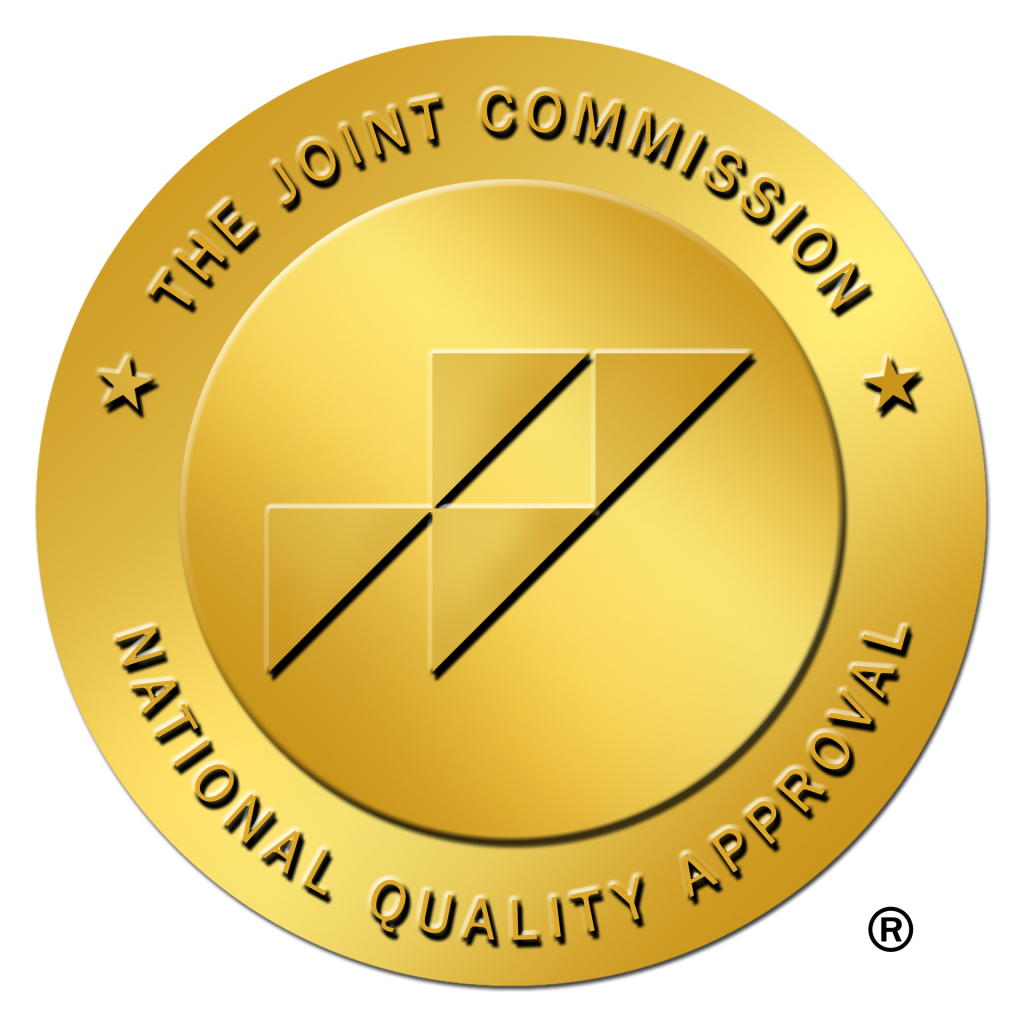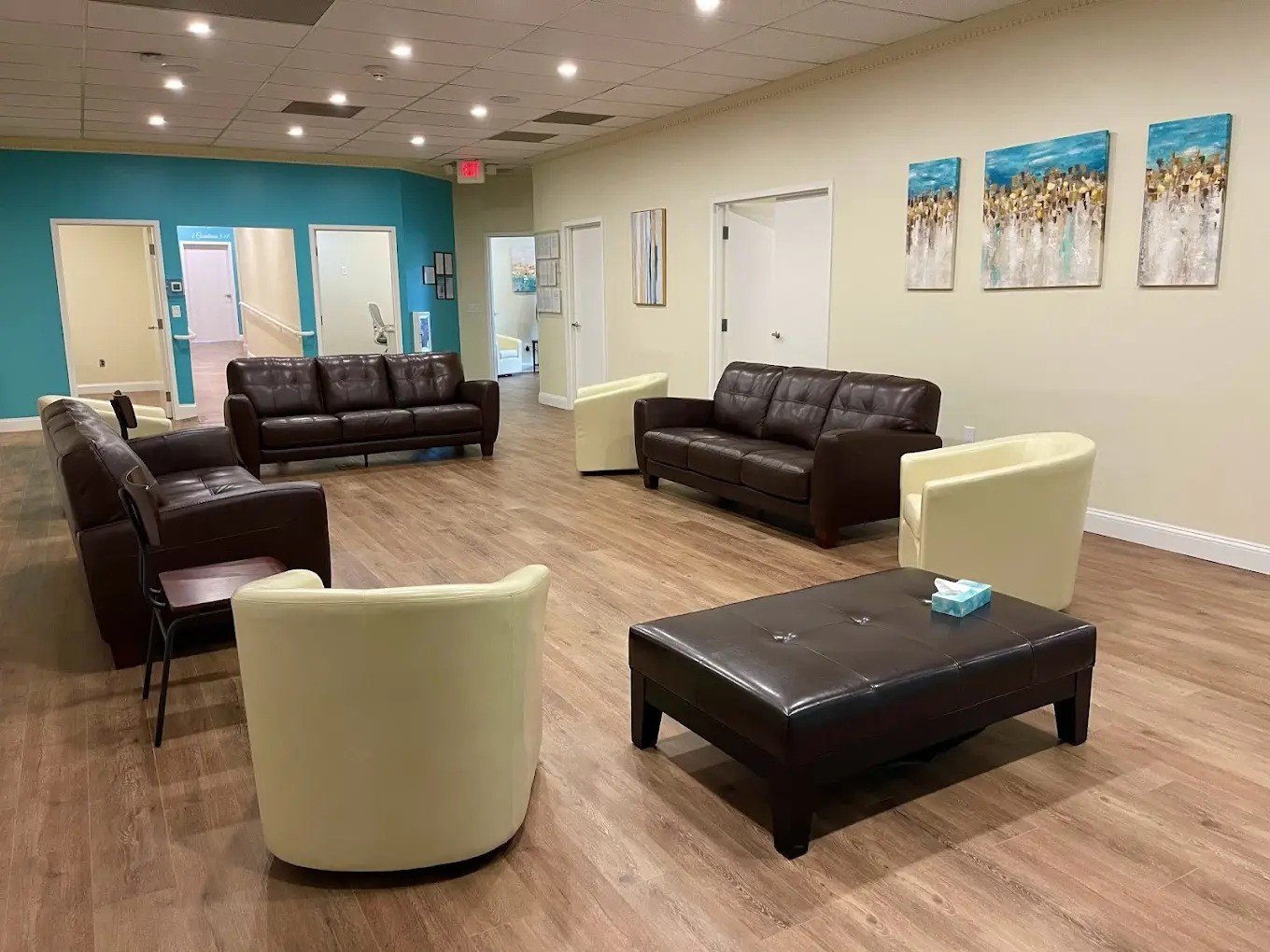Iop Near Me
Understanding the Intensity of Intensive Outpatient Programs
Intensive Outpatient Programs (IOPs) have emerged as a key component in the battle against substance use disorders, offering a balance between the rigid structure of inpatient treatment and the flexibility of traditional outpatient programs. These programs are designed to accommodate individuals who need more support than outpatient care provides, yet do not require 24-hour medical supervision. The format typically involves attending sessions several times a week for a few hours each visit, allowing participants to maintain their daily routines and responsibilities.
IOPs serve as a transitional step for those who have completed inpatient treatment, or as a primary option for individuals with commitments like work or school. The program’s intensity ensures that participants receive ample support while still having the freedom to apply learned skills in real-world settings. This blend of structured care and personal autonomy makes IOP a practical solution for many seeking recovery.
Components of a Successful IOP
A successful IOP incorporates several core components designed to address various aspects of recovery. Group therapy is often at the heart of the program, promoting peer support and accountability. These sessions allow participants to share experiences, strategies, and successes, fostering a sense of community and belonging.
In addition to group therapy, individualized counseling and medication-assisted treatment (MAT) are crucial elements. Personalized sessions with therapists help patients address specific challenges, while MAT supports those dealing with cravings and withdrawal symptoms. Other vital components may include family counseling, educational workshops, and skill-building activities.
Effective IOPs also incorporate evidence-based therapeutic approaches such as Cognitive Behavioral Therapy (CBT), Dialectical Behavior Therapy (DBT), and Motivational Interviewing. These therapies provide tools for managing triggers, developing healthier coping mechanisms, and setting achievable recovery goals.
Choosing the Right IOP Near Me
When searching for an “IOP near me,” it’s essential to consider factors beyond proximity. The quality of the program, its staff, and the types of treatment offered are paramount. Start by researching centers like New Chapter Recovery, which offer a comprehensive array of services tailored to the individual’s needs.
Consider the program’s flexibility, especially if you need to balance treatment with work or family commitments. New Chapter Recovery offers day and evening sessions, facilitating access to care without disrupting daily responsibilities. Additionally, the center’s integrated dual diagnosis model ensures that co-occurring mental health issues receive the same attention as substance use disorders.
Don’t hesitate to reach out to facilities with any questions about their offerings, insurance compatibility, or to request a tour. Engaging with the center before beginning treatment can provide valuable insights into the program’s suitability for you or your loved one.
Personal Stories from IOP Graduates
Real-life experiences often provide the most compelling evidence of a program’s effectiveness. John, a graduate of New Chapter Recovery’s IOP, credits the structured support and personalized care for his sustained sobriety. He highlights the importance of group therapy sessions, where he developed friendships and a robust support network that extends beyond the program.
Susan, another participant, found immense value in the flexible schedule, allowing her to attend sessions after work. She emphasizes the importance of the center’s focus on family involvement, noting that family therapy sessions helped mend strained relationships and reinforced her support system.
These stories underscore the impact of a well-structured IOP, demonstrating the possibility of maintaining everyday responsibilities while progressing in recovery.
Specialty Tracks and Customized Care
Specialty tracks are a distinctive feature of New Chapter Recovery’s offerings, tailoring care to diverse needs. Veterans can partake in programs that address unique challenges, while animal-assisted therapy sessions provide calming and restorative interactions for all participants.
Faith-based recovery tracks offer spiritual components that resonate with individuals seeking that dimension in their healing journey. These specialty tracks enhance the core IOP framework, providing customized care that addresses specific aspects of participants’ lives.
The inclusion of these personalized options highlights an emphasis on holistic healing and underscores the program’s dedication to meeting a wide variety of client needs.
Measuring Success and Outcomes in IOP
Measuring success within an IOP extends beyond merely achieving sobriety; it’s about cultivating sustainable lifestyle changes. At New Chapter Recovery, success is defined through individualized goal setting and continuous monitoring of progress. Therapists collaborate with participants to craft achievable objectives, emphasizing emotional resilience, and practical skills for relapse prevention.
Success is often marked by milestones like improved familial relationships, stable employment, and personal growth. The center utilizes feedback from clients, addressing any barriers encountered and adjusting treatment plans to maximize effectiveness. This adaptive approach ensures that the path to recovery remains progressive and responsive to each individual’s needs.
The Role of Family and Community in Recovery
Support from family and community plays a pivotal role in the recovery process. New Chapter Recovery prioritizes involving family in the treatment journey, understanding that healing occurs within a network of relationships. Family therapy sessions aim to rebuild trust, improve communication, and establish supportive dynamics.
Community reintegration is another critical aspect emphasized within IOP. New Chapter Recovery facilitates connections through local support groups and events, offering clients opportunities to engage with others in recovery. This communal approach reinforces accountability and fosters a sense of belonging, which is vital for long-term success.
Integrating family and community support adds layers to the recovery experience, offering a comprehensive approach that extends beyond individual therapy sessions.
Such involvement not only helps in combating addiction but also in building a more fulfilling and balanced life post-treatment.
Flexible Scheduling to Accommodate Unique Lifestyles
One of the defining features of a successful IOP like the one offered at New Chapter Recovery is its adaptability to clients’ schedules. Recognizing that individuals may have various responsibilities, the center provides flexible session timings, including day and evening options. This scheduling flexibility ensures that treatment integrates seamlessly into participants’ lives, reducing barriers to access.
Flexible scheduling caters to a diverse clientele, from working professionals to students and primary caregivers. By allowing clients to attend sessions at convenient times, New Chapter Recovery helps them maintain their employment, academic pursuits, and familial duties while pursuing recovery.
This adaptability not only increases attendance but also boosts commitment levels, as clients feel that their needs and constraints are being respected and accommodated.
Insurance Coverage and Financial Considerations
Financial considerations should be straightforward and transparent. New Chapter Recovery’s dedicated insurance verification team ensures a smooth process, helping clients navigate their insurance plans, including Tricare and out-of-network options. This crucial support allows clients to focus on recovery without undue financial stress.
Understanding the financial aspects upfront can prevent unexpected surprises. Prospective clients are encouraged to contact the center to discuss available payment plans, insurance coverage specifics, and any financial assistance options. By addressing these concerns early, individuals can make informed decisions about their care.
Maintaining Recovery After Leaving IOP
Transitioning from an IOP to regular life involves continued efforts to sustain recovery. New Chapter Recovery facilitates this process through a structured aftercare plan tailored to the departing client’s needs. This plan includes ongoing support groups, periodic check-ins, and access to counseling for any emerging challenges.
Clients are encouraged to continue participating in community-based support networks, such as 12-step programs or alumni groups. These resources provide a continued sense of community and accountability, essential for maintaining progress.
Additionally, the center assists in setting realistic goals and developing coping strategies for potential relapse triggers. By emphasizing long-term planning and support, New Chapter Recovery ensures that clients are equipped to embrace a sober lifestyle confidently.
What makes an Intensive Outpatient Program (IOP) different from other treatment options?
Intensive Outpatient Programs (IOPs) offer a unique blend of flexibility and structure that distinguishes them from inpatient and traditional outpatient programs. While inpatient programs require 24-hour residency and offer a highly controlled environment, IOPs provide substantial therapeutic support without the need for participants to stay overnight. This allows individuals to continue meeting personal and professional responsibilities, making it a viable option for many. IOPs involve a commitment of several hours weekly, providing intensive therapeutic sessions more frequently than standard outpatient care. Consequently, they serve as a bridge for those transitioning from inpatient settings, or for those who need more support than regular outpatient care provides.
A common misconception is that the flexibility IOPs offer may compromise the intensity or effectiveness of treatment; however, studies show that the structured yet autonomous nature of IOPs can lead to successful outcomes by enabling participants to apply learned strategies in their real-world environments. If you’re considering treatment, think about how an IOP might align with your current lifestyle, allowing you to maintain work, school, or family commitments while prioritizing your recovery.
What are essential components of a successful IOP?
Successful Intensive Outpatient Programs (IOPs) incorporate a variety of therapeutic modalities and support systems to ensure comprehensive care. Key elements include group therapy, which fosters community and peer support, and individualized counseling sessions that address specific challenges unique to each participant. Many programs, including those at New Chapter Recovery, integrate evidence-based therapies such as Cognitive Behavioral Therapy (CBT) and Dialectical Behavior Therapy (DBT) to assist in developing healthy coping mechanisms.
Additionally, medication-assisted treatment (MAT) can be crucial for individuals dealing with withdrawal and cravings, offering a medical layer of support to complement psychological care. Specialty tracks, such as those for veterans or faith-based recovery, cater to specific needs and enhance the core framework of the program. Family involvement is another pivotal component, as evidenced by family therapy sessions that aim to rebuild trust and improve communication. By addressing these diverse aspects, a successful IOP can provide a holistic approach to recovery.
Thinking about your specific needs and preferences, what components would be most beneficial in your recovery journey?
How should I evaluate and choose the right IOP in my local area?
Selecting the right Intensive Outpatient Program (IOP) involves more than just proximity; it’s about finding a program that aligns with your personal needs and values. Begin by researching facilities like New Chapter Recovery, which offers a diverse range of services tailored to individual needs. Consider the program’s hours, especially if you have work or family responsibilities that require flexibility.
Assess the treatment modalities offered, such as dual diagnosis services if you are dealing with co-occurring mental health issues alongside substance use. Don’t hesitate to contact the facilities for detailed discussions about their programs, insurance coverage, and to even arrange a tour. Engaging with the center before committing can provide crucial insights and peace of mind that the program is suited to your recovery goals.
Reflect on your priorities: What specific program features are non-negotiable for you as you seek recovery?
How do personal experiences from IOP graduates shape our understanding of recovery?
Personal stories from graduates of Intensive Outpatient Programs (IOPs) offer invaluable perspectives and hope for those embarking on their recovery journey. Participants like John and Susan from New Chapter Recovery share experiences that illuminate the profound impact of structured support and flexible scheduling on sustained sobriety. John highlights the friendships and support network developed through group therapy, while Susan emphasizes the importance of family involvement in her recovery.
These narratives underscore that recovery is not just about overcoming addiction, but about building robust support systems and repairing relationships. Their stories reflect the variety of journeys and remind us that while the path to recovery is unique for each individual, shared experiences can foster motivation and resilience.
Consider how real-life testimonials might influence your expectations or provide inspiration on your recovery path. What aspects of their stories resonate most with you?
What role do specialty tracks play in personalized IOP care?
Specialty tracks add a layer of tailored care within Intensive Outpatient Programs (IOPs), accommodating the diverse needs and backgrounds of participants. New Chapter Recovery offers targeted programs for veterans, individuals seeking faith-based recovery, and those interested in animal-assisted therapy, for example. Such tracks cater to specific experiences and preferences, enhancing the overall treatment by addressing unique aspects of a participant’s life.
Customizing care through these specialty tracks ensures that the therapeutic approach resonates more deeply with the individual, often leading to more profound engagement and effectiveness in treatment. It’s about creating an environment where clients feel understood and supported in a way that relates directly to their personal and cultural contexts.
Reflect on your own life experiences and consider: How might a tailored program better serve your recovery process?
How do IOPs measure success and outcomes for participants?
Measuring success in an Intensive Outpatient Program (IOP) extends beyond achieving sobriety; it’s about fostering sustainable lifestyle changes and personal growth. At New Chapter Recovery, success is often gauged through individualized goals, continuous progress monitoring, and emotional resilience development. The program emphasizes setting realistic and achievable objectives, focusing on areas such as improved relationships, stable employment, and the development of practical skills for relapse prevention.
Feedback from participants is crucial, allowing therapists to adjust treatment plans and address any barriers encountered. This adaptive approach ensures the program remains responsive to individual needs, maximizing its effectiveness. Success is seen in the ability to maintain progress post-treatment, illustrating both immediate and long-term benefits.
What milestones or personal achievements would you consider as markers of success on your recovery journey?
Why is family and community involvement crucial in the recovery process?
The involvement of family and community is fundamental in the recovery process, acting as a support network for individuals navigating the challenges of overcoming addiction. New Chapter Recovery emphasizes family therapy as a means to rebuild trust and improve communication within family units, acknowledging that healing often occurs within these relational contexts.
Community reintegration through local support groups further bolsters recovery by offering additional layers of accountability and belonging. Engaging with others who share similar experiences can cultivate motivation and resilience, reducing feelings of isolation often associated with recovery. These communal approaches not only support individual recovery but help in building a fulfilling life post-treatment.
How might your family or community support system play a role in your recovery path?
What are the benefits of flexible scheduling in IOPs?
Flexible scheduling is a hallmark of effective Intensive Outpatient Programs (IOPs), providing accessibility without sacrificing the therapeutic intensity of the program. At New Chapter Recovery, day and evening sessions are available, accommodating those who need to balance work, school, or family responsibilities with treatment. This flexibility not only facilitates higher attendance but also reinforces commitment levels, as clients feel their personal needs and constraints are being respected.
By integrating treatment into their existing routines, clients can maintain important facets of their lives while still focusing on recovery. It’s an empowering approach where participants can actively apply what they learn during treatment in their day-to-day settings.
How could integrating treatment into your current schedule enhance your recovery journey?
How can I navigate insurance and financial considerations when enrolling in an IOP?
Navigating insurance and financial aspects is a significant part of enrolling in an Intensive Outpatient Program (IOP), and understanding them upfront can prevent stress and confusion later. New Chapter Recovery’s dedicated insurance verification team simplifies this process by helping clients understand their coverage, whether through major providers or options like Tricare.
Prospective clients are encouraged to engage in discussions about payment plans, insurance coverage specifics, and available financial assistance options. This transparency ensures that financial planning supports, rather than hinders, the recovery process. Being informed about these aspects can allow individuals to make decisions with confidence and focus more on their path to recovery.
What financial tools or supports would ease your ability to focus on recovery?
What strategies can help in maintaining recovery after leaving an IOP?
Maintaining recovery post-Intensive Outpatient Program (IOP) treatment involves a proactive approach to sustaining the progress made. New Chapter Recovery guides clients through transition with structured aftercare plans that include ongoing support groups, periodic check-ins, and access to counseling for emerging challenges. Continuing participation in community-based support networks, like 12-step programs, is encouraged to provide ongoing accountability and community support.
Setting realistic goals and developing strategies for managing potential relapse triggers is crucial for long-term success. Creating a support network and having a plan for integrating recovery principles into everyday life can significantly aid in maintaining sobriety.
What steps are you considering to sustain your recovery journey after completing an IOP?
Resources
- Substance Abuse and Mental Health Services Administration (SAMHSA) – SAMHSA is the agency within the U.S. Department of Health and Human Services that leads public health efforts to advance the behavioral health of the nation.
- National Institute on Drug Abuse (NIDA) – NIDA’s mission is to advance science on the causes and consequences of drug use and addiction and to apply that knowledge to improve individual and public health.
- American Psychiatric Association (APA) – APA is the leading psychiatric organization in the world, with a mission to promote the highest quality care for individuals with mental disorders, including substance use disorders.
- National Council on Alcoholism and Drug Dependence (NCADD) – NCADD aims to raise awareness about the consequences of alcoholism and drug dependence and the promise of recovery.
- Centers for Disease Control and Prevention (CDC) – The CDC is a leading national public health institute in the United States that works to protect public health and safety through the control and prevention of disease, injury, and disability.






